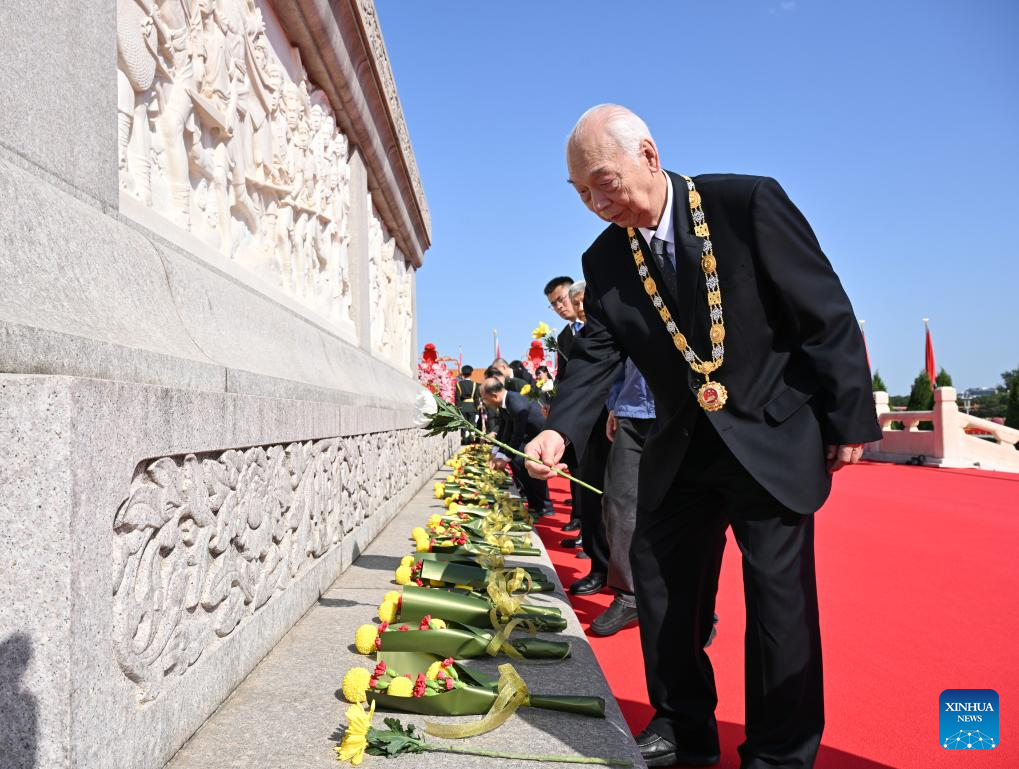
A ceremony to present flower baskets to fallen national heroes to mark Martyrs' Day is held at Tian'anmen Square in Beijing, capital of China, Sept. 30, 2025. (Xinhua/Li Xiang)
BEIJING, Sept. 30 (Xinhua) -- In Shanghai, a Chinese metropolis of soaring glass towers and a shimmering skyline, an old warehouse pockmarked with bullet holes still stands. Before its walls, 10-year-old Lu Yucheng quietly laid down his favorite candies.
"This is my way of paying tribute to the heroes," said Lu, a local pupil. "They suffered so much during the war. I wanted to bring them something sweet."
This year marks the 80th anniversary of victory in the Chinese People's War of Resistance against Japanese Aggression and the World Anti-Fascist War. On Sept. 3, a grand military parade in Beijing stirred passions nationwide, inspiring many, including Lu, to revisit history.
Accompanied by his parents and grandfather, Lu visited the Sihang warehouse, where in 1937 a few hundred Chinese soldiers held off invading Japanese forces in a siege that became a defining symbol of China's resistance during the war.
After touring the memorial, he wrote in the guest book: "Without these heroes, there would be no country; without the country, we wouldn't have the happy home we have today."
Lu's visit came just days before Martyrs' Day on Tuesday, a national observance established by China's top legislature in 2014 to honor those who gave their lives for national independence and prosperity, including fallen soldiers during the War of Resistance.
On Tuesday morning, leaders of the Communist Party of China (CPC) and the state attended a ceremony to present flower baskets to fallen national heroes at Tian'anmen Square in central Beijing.
Across the country, commemorations of the war victory continue, as more people seek to reconnect with that unforgettable chapter of history, leaving handwritten reflections in memorial halls and museums and voicing their aspirations for a stronger nation.
At the Shanghai Sihang Warehouse Battle Memorial, visitors arrive daily with small gifts for the fallen -- mooncakes, biscuits, sausages, liquor and flowers. "Since the parade, visitor numbers have risen sharply," said Ma Youjiong, the memorial's director. "People have come from all over the world, such as Malaysia, Russia, the Republic of Korea and even Japan."
Among the 700 pages of guest book entries this month, recurring words stand out: "never forget," "peace" and "rejuvenation". One visitor, Wang Qingling from Shanxi Province, wrote: "Today we came to the Sihang warehouse and truly felt the weight of history. My heart is heavy. May our country be prosperous and our people live in peace."
Others expressed sentiments of duty; for instance, teacher Wang Keman reflected on his experience after visiting a memorial hall in northeast China's Liaoning Province. "A nation cannot exist without heroes, and a people without heroes have no hope," he wrote. "If the younger generation cannot understand the spirit of those who came before, they will lack the courage and perseverance to strive. As a teacher, I feel a profound sense of responsibility."
At the Memorial Hall of the Victims of the Nanjing Massacre by Japanese Invaders, 26-year-old graduate student Tang Mingshan was deeply moved. "The Nanjing Massacre was a human tragedy, not only for the city but for the entire country and even the world. As the younger generation, we are fortunate to live in an era of peace, an era safeguarded by countless predecessors," she wrote in the guest book.
On Dec. 13, 1937, Japanese troops captured the then-Chinese capital Nanjing, unleashing six weeks of devastation that claimed the lives of an estimated 300,000 civilians and unarmed soldiers.
For Tang, who had seen the September parade on television, the pull of history was too powerful to ignore. She changed her travel plans to visit the site for the first time.
"The first thing I saw was a statue I had only previously read about in textbooks," she said. "A ragged mother held her dead child helplessly in her hands. You could feel her grief. History tells us that backwardness leaves one vulnerable to attack. That is why I feel we must work hard to make our nation stronger."
The memorial receives about 5 million visitors each year. In 2024 alone, visitors left 109,208 messages in its guest books.
For Zhou Feng, the memorial's curator, the change is clear. "Visitors' emotions are deeper, more measured," he said. "There is a stronger thirst for knowledge. They want to understand the details, the background and the international impact of that history."
The War of Resistance was the Chinese people's longest and largest fight against foreign aggression in modern times since the Opium War of 1840. It came with the greatest sacrifice -- 35 million military and civilian casualties -- but ended in the people's first complete victory in national liberation.
"The victory marked a great turning point for the Chinese nation, from decline to rejuvenation," said Hu Yongheng, a historian at the Chinese Academy of Social Sciences.
Wartime resilience and perseverance continue to inspire today's China. According to its development blueprint, the country's second centenary goal is to transform China into a great modern socialist country in all respects by the middle of the century.
In just over a month after the military parade, China will convene the fourth plenary session of the 20th CPC Central Committee to study the proposals for formulating the 15th Five-Year Plan (2026-2030) for national economic and social development. The plan period will be a crucial phase to consolidate the foundation and make all-out efforts for the goal of basically realizing socialist modernization.
An article in People's Daily highlighted that as China progresses towards high-quality development, it will create broader market, investment and growth opportunities for the world.
After WWII, China emerged as a UN Security Council permanent member and an independent power, helping shape the postwar world.
Over the past few years, China has proposed the vision of building a community with a shared future for humanity, along with the Global Development Initiative, the Global Security Initiative, the Global Civilization Initiative and the Global Governance Initiative, sharing wisdom and solutions for navigating global transformations and overcoming pressing challenges.
In Shenyang, capital of Liaoning and the place where the War of Resistance began, remembrance lives alongside rapid change.
As a member of Siasun Robot & Automation Co., Ltd., a leading robotics firm in Shenyang, Ha Enjing has come to feel more deeply that technological innovation is a vital pillar of national strength.
Today, the company's products are sold in more than 40 countries and regions, with brands like Rolls-Royce among its clients. "Drawing strength from history, what I can do is to contribute to technology," she said.
For Guan Jixiang, a freshman at Shenyang Urban Construction University, the lesson lies in study and perseverance.
After visiting the 9.18 Historical Museum, he left a message: "We will cherish today's good life and turn the spirit of the martyrs into motivation to move forward. By remembering history, we can create a better future." ■
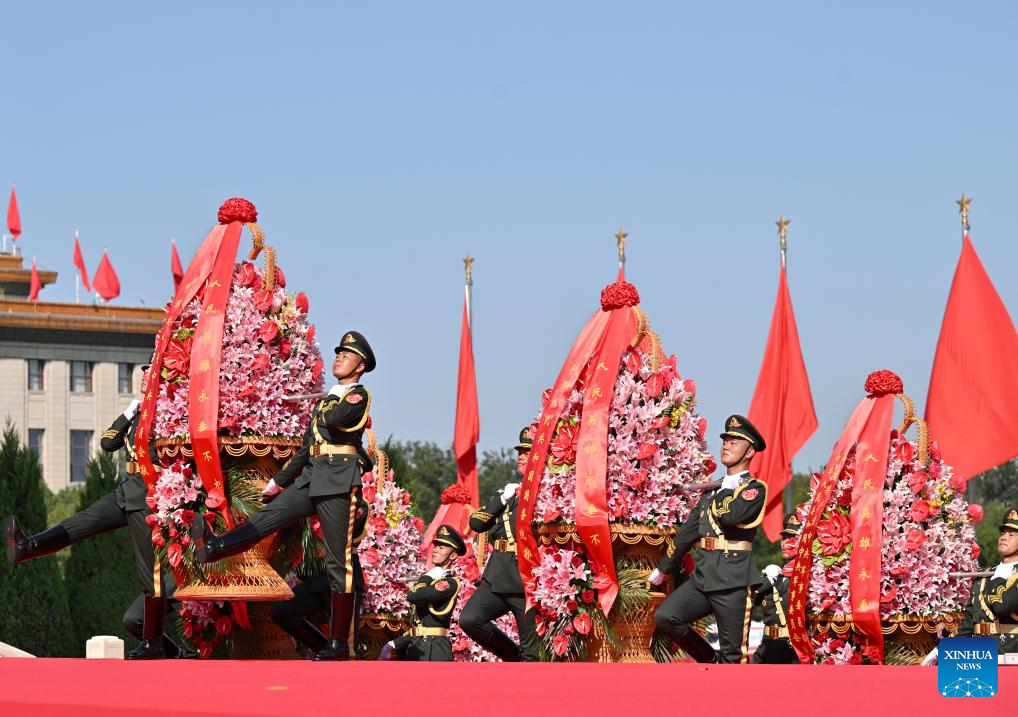
A ceremony to present flower baskets to fallen national heroes to mark Martyrs' Day is held at Tian'anmen Square in Beijing, capital of China, Sept. 30, 2025. (Xinhua/Yue Yuewei)
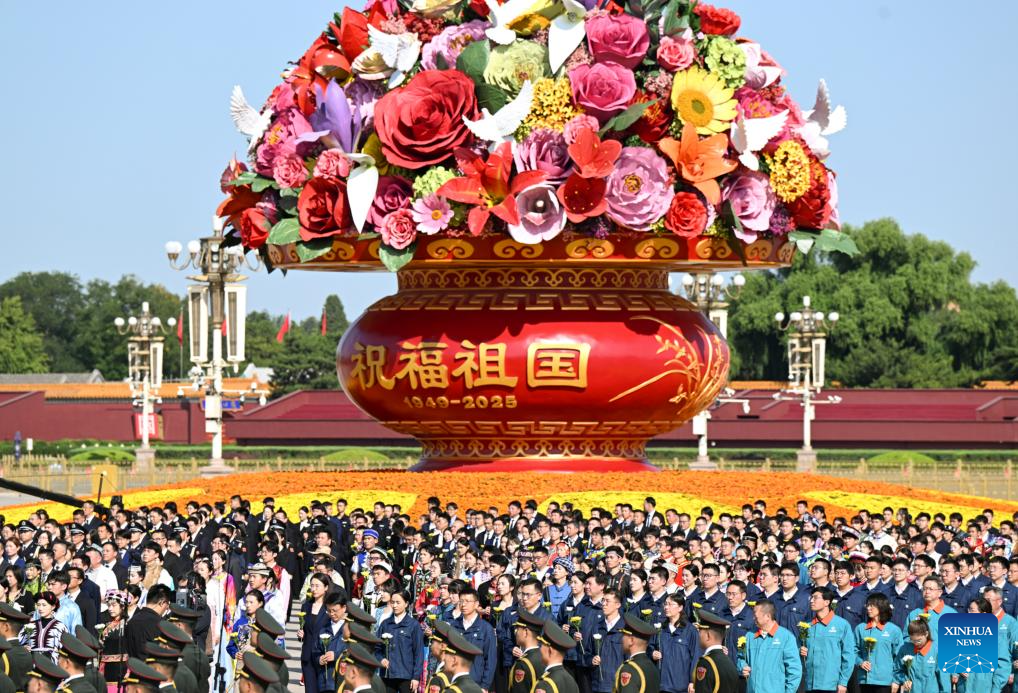
A ceremony to present flower baskets to fallen national heroes to mark Martyrs' Day is held at Tian'anmen Square in Beijing, capital of China, Sept. 30, 2025. (Xinhua/Zhang Ling)
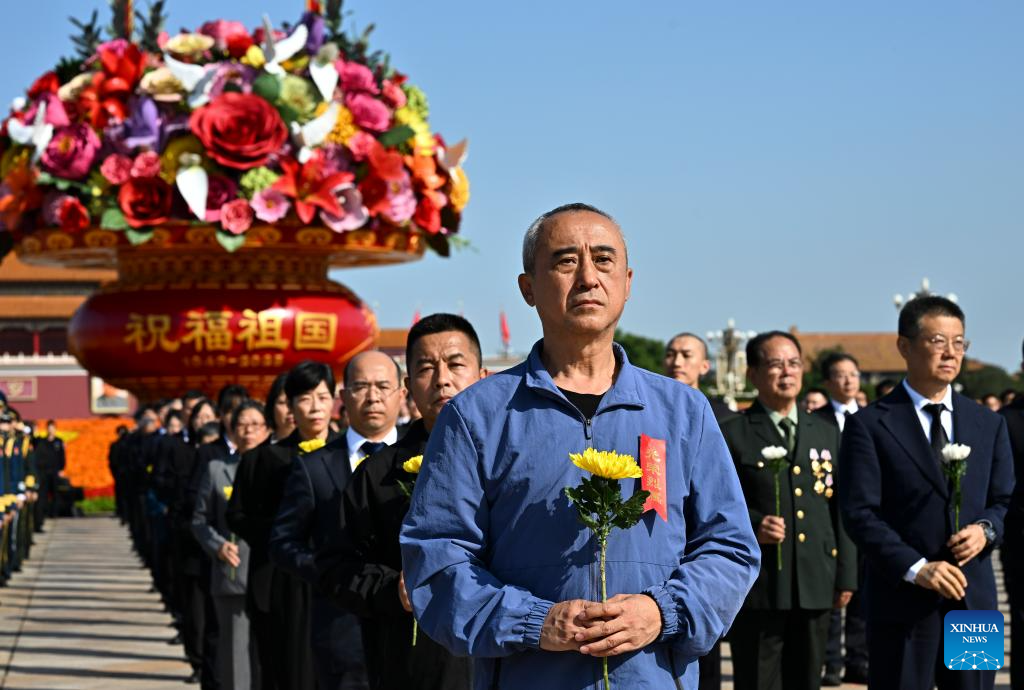
A ceremony to present flower baskets to fallen national heroes to mark Martyrs' Day is held at Tian'anmen Square in Beijing, capital of China, Sept. 30, 2025. (Xinhua/Yan Yan)
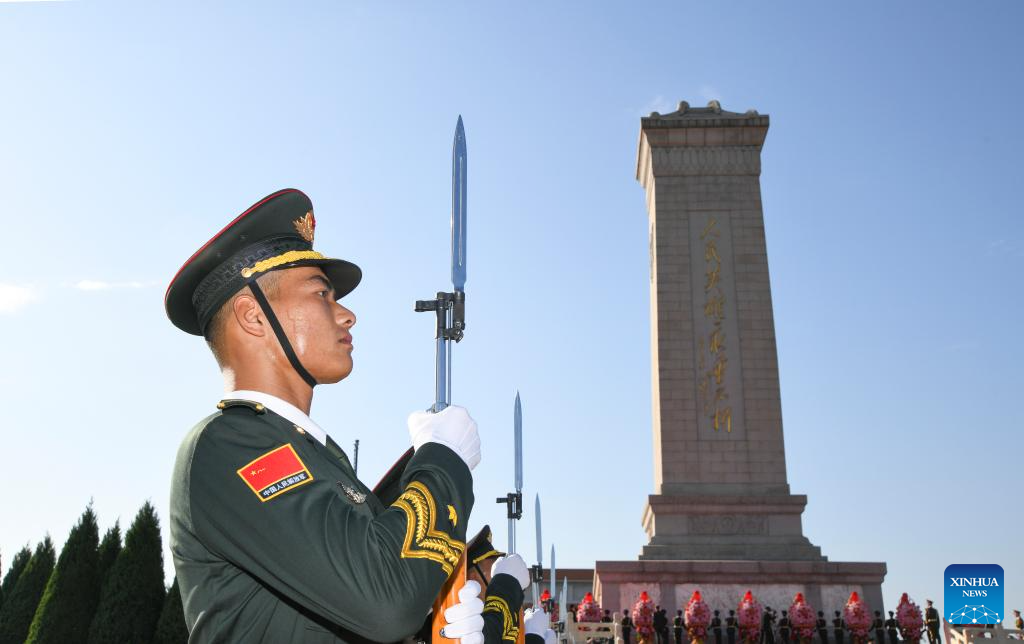
A ceremony to present flower baskets to fallen national heroes to mark Martyrs' Day is held at Tian'anmen Square in Beijing, capital of China, Sept. 30, 2025. (Xinhua/Zhang Ling)
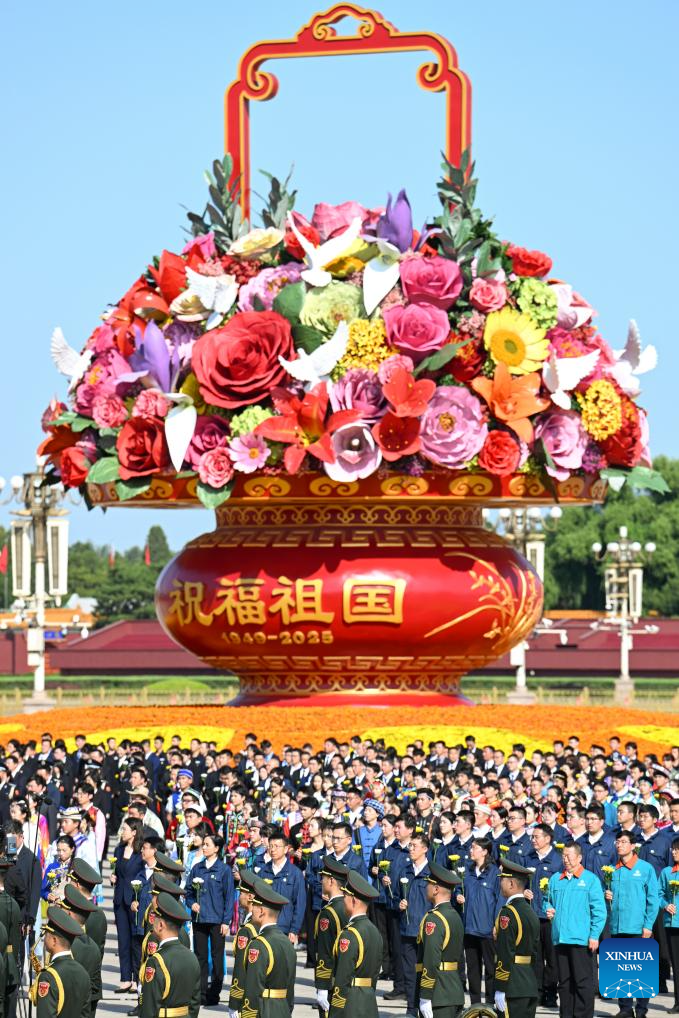
A ceremony to present flower baskets to fallen national heroes to mark Martyrs' Day is held at Tian'anmen Square in Beijing, capital of China, Sept. 30, 2025. (Xinhua/Zhang Ling)
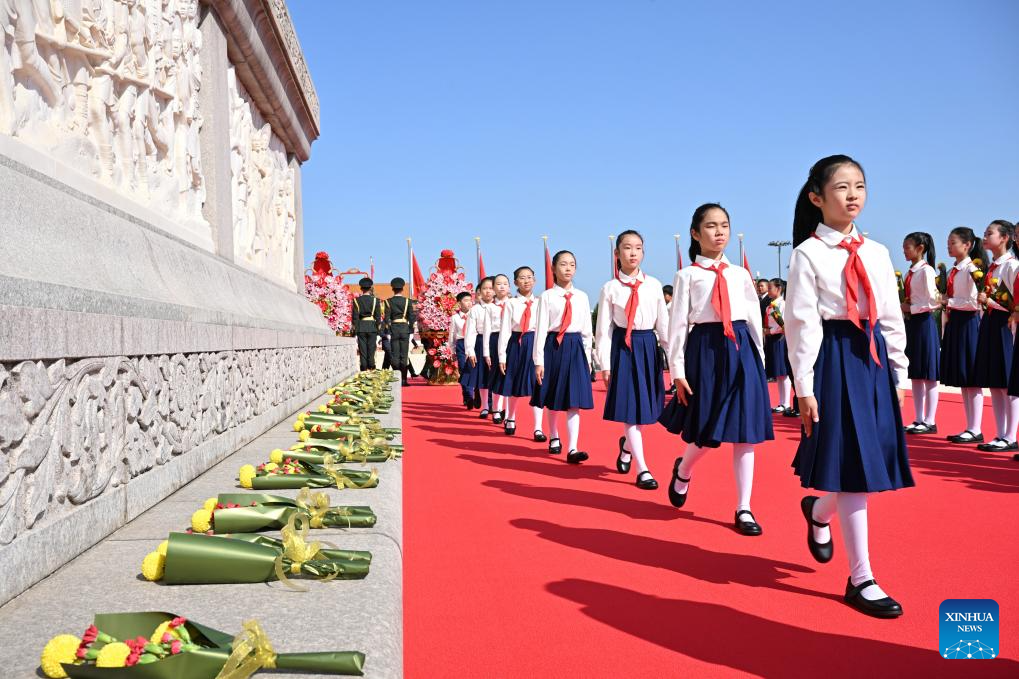
A ceremony to present flower baskets to fallen national heroes to mark Martyrs' Day is held at Tian'anmen Square in Beijing, capital of China, Sept. 30, 2025. (Xinhua/Li Xiang)
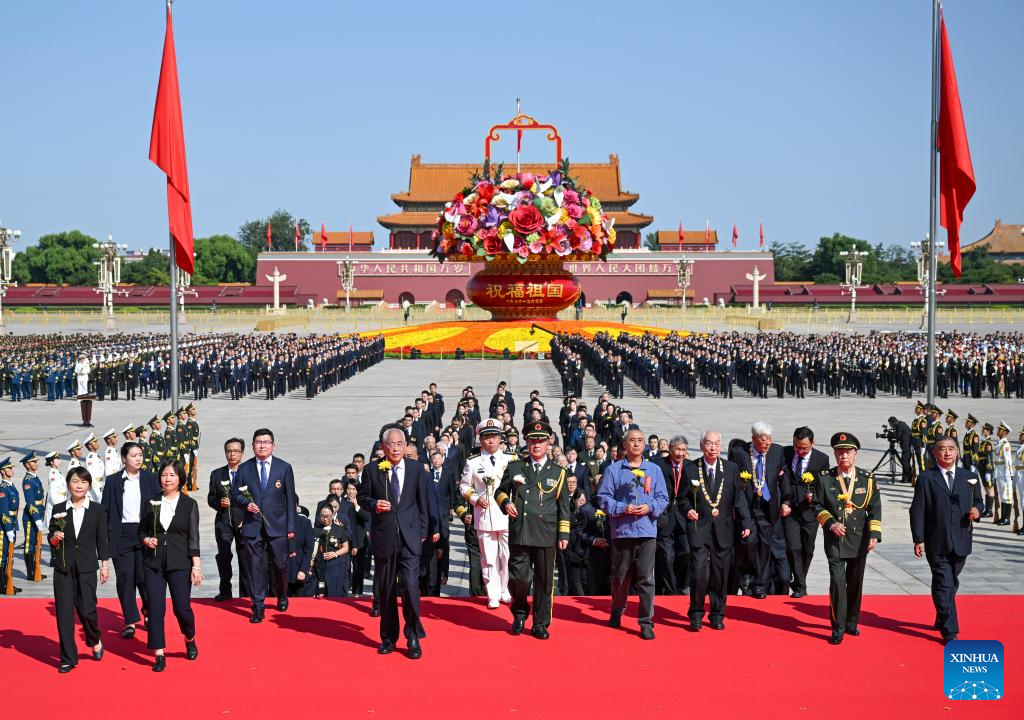
A ceremony to present flower baskets to fallen national heroes to mark Martyrs' Day is held at Tian'anmen Square in Beijing, capital of China, Sept. 30, 2025. (Xinhua/Xie Huanchi)
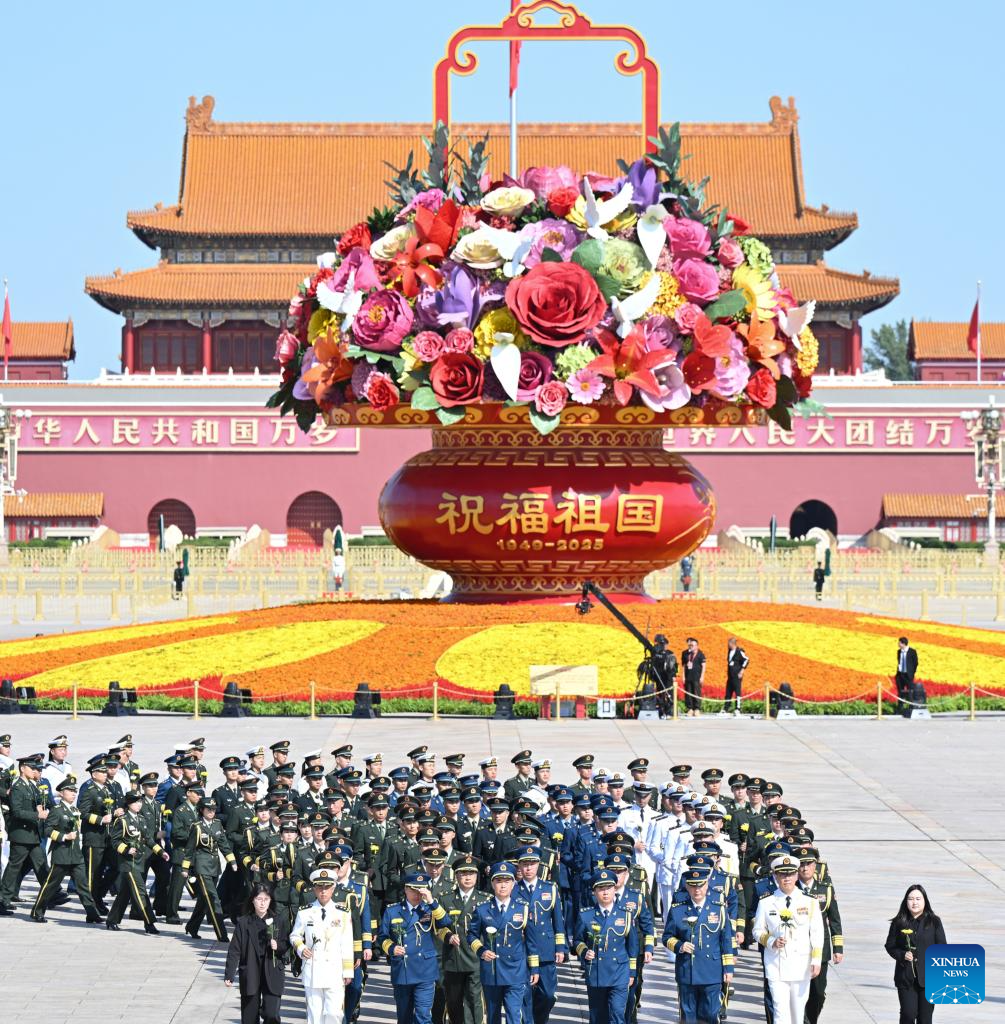
A ceremony to present flower baskets to fallen national heroes to mark Martyrs' Day is held at Tian'anmen Square in Beijing, capital of China, Sept. 30, 2025. (Xinhua/Li Xiang)
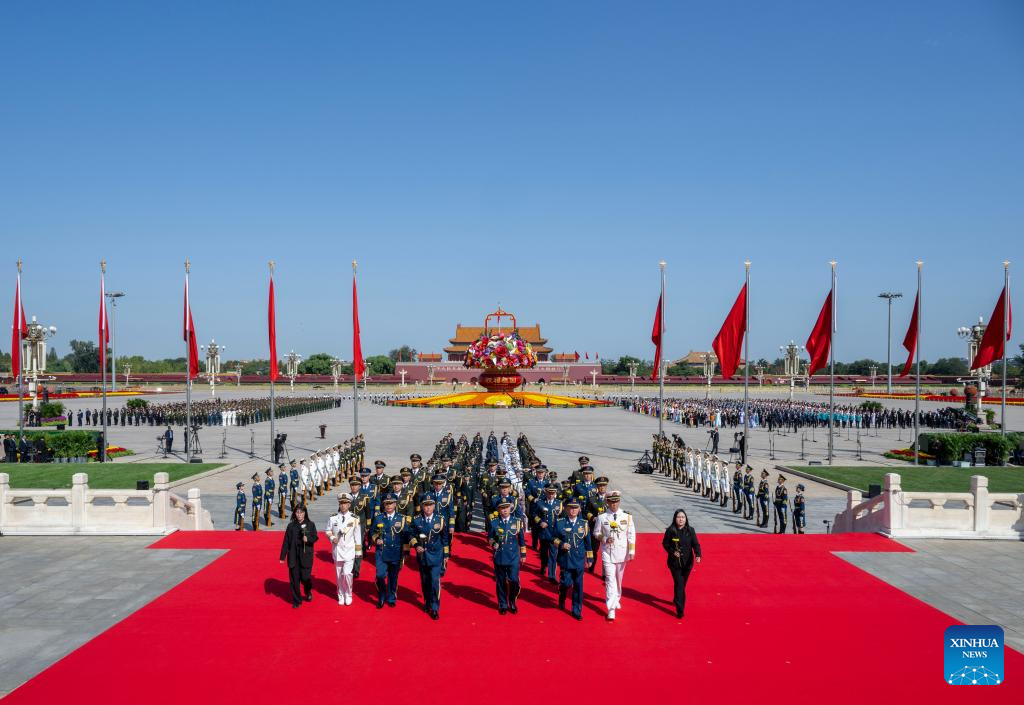
A ceremony to present flower baskets to fallen national heroes to mark Martyrs' Day is held at Tian'anmen Square in Beijing, capital of China, Sept. 30, 2025. (Xinhua/Zhai Jianlan)
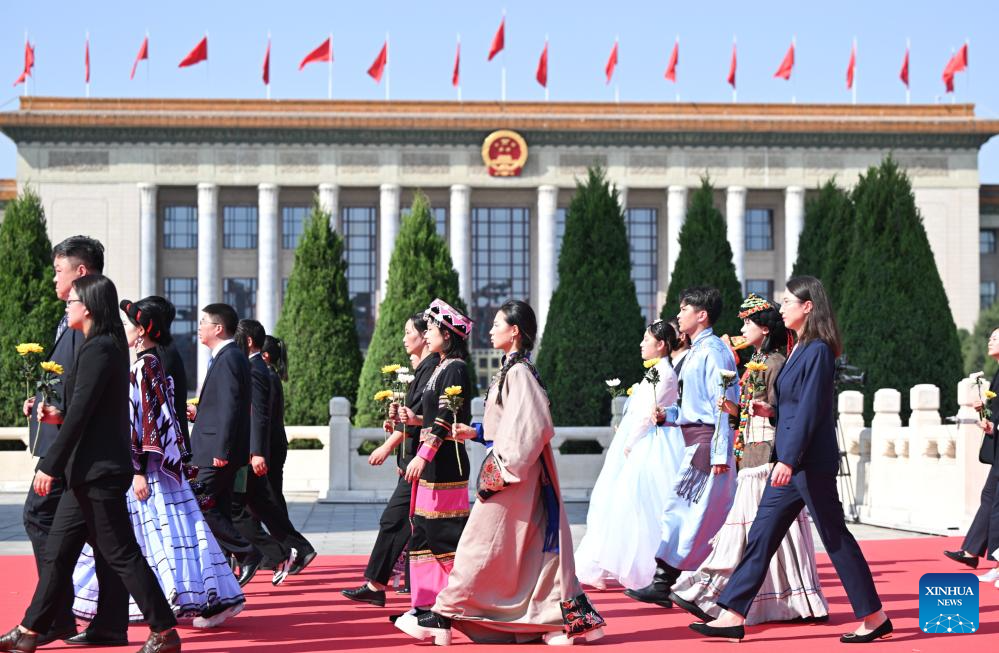
A ceremony to present flower baskets to fallen national heroes to mark Martyrs' Day is held at Tian'anmen Square in Beijing, capital of China, Sept. 30, 2025. (Xinhua/Li Xiang)
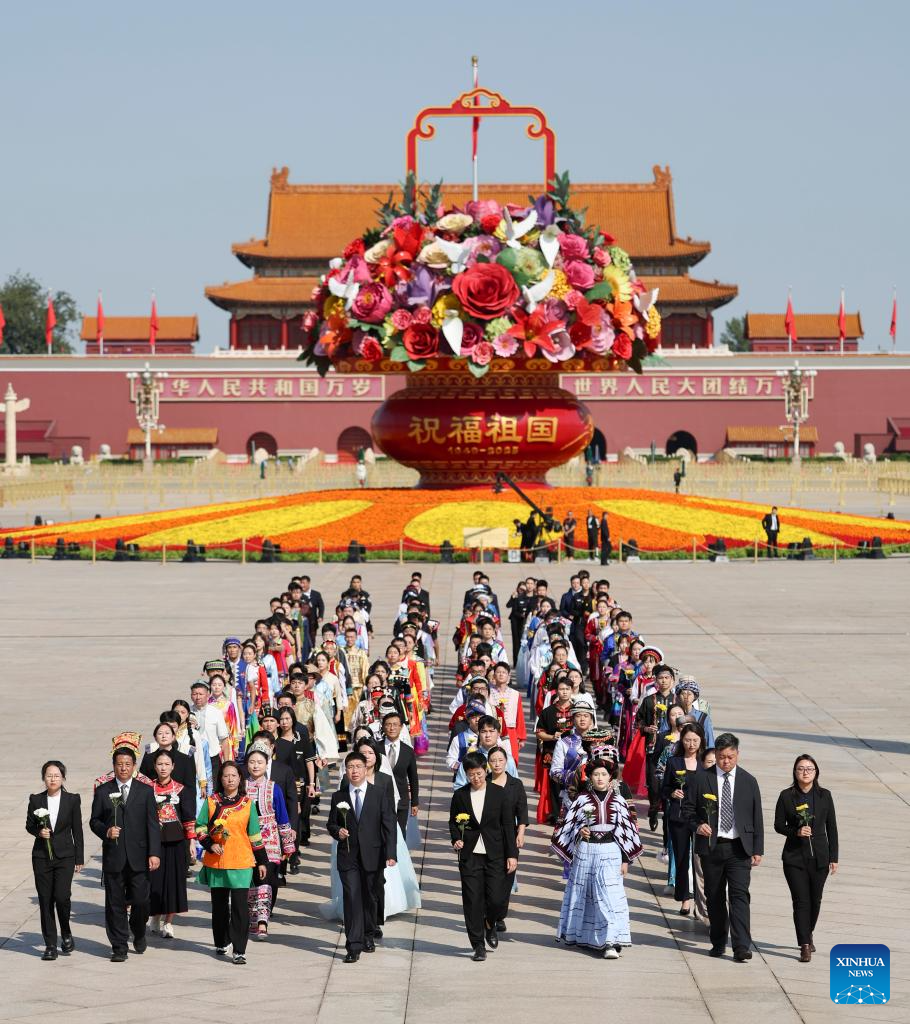
A ceremony to present flower baskets to fallen national heroes to mark Martyrs' Day is held at Tian'anmen Square in Beijing, capital of China, Sept. 30, 2025. (Xinhua/Ding Haitao)
微信扫描下方的二维码阅读本文

